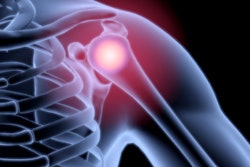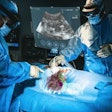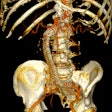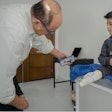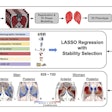Dear Imaging Informatics Insider,
Much has been said and written about machine learning during recent weeks and months, but what practical measures can help ensure success in this area for radiologists?
Austrian researchers have addressed this question, and they won a certificate of merit at RSNA 2018 for their efforts. Don't miss our news report about their prize-winning presentation in Chicago.
Artificial intelligence (AI) continues to divide opinion. An Italian team has predicted that AI will change radiology as much as x-ray did in 1895, but others warn that the hype may not live up to its promise. Against this background, industry expert Gene Saragnese has written a guest editorial on AI.
German medical students, at least, tend not to fear AI, it seems. A survey presented at RSNA 2018 found that most medical students aren't afraid of being replaced by AI and are optimistic that it will improve radiology as well as medicine in general.
Meanwhile, radiologists need to highlight patient interaction and how they contribute to clinical management to help attract the best medical students to radiology, according to speakers at the recent annual leadership meeting of the European Society of Radiology in Berlin. This recruiting effort is vital, experts noted at the meeting's special session on the future of radiology.
Machine-learning algorithms can be used to generate realistic "superresolution" digital breast phantoms that can be used for computer simulations of breast imaging, stated a group from Radboud University Medical Center in the Netherlands and the University of Trieste in Italy. These phantoms can be used to simulate acquisitions of a dedicated breast CT or breast tomosynthesis image, enabling optimization of the design and settings of new imaging systems before they are actually built, according to the researchers. They could also help verify the accuracy of new image analysis methods.
Cybersecurity still appears to be a major challenge for U.K. hospitals. A recent survey found that many hospitals lack sufficient in-house cybersecurity expertise and seem to be failing to meet training targets on information governance. What's more, there's a wide imbalance in employee cybersecurity training and spending, the report found.
Can AI assist with cybersecurity? Analysis presented at RSNA 2018 found that it could help thwart cyberattacks on medical imaging equipment. It could, however, also be used to alter images in a manner that's very difficult for radiologists to detect, according to our coverage.
If you have any tips or suggestions for topics you'd like to see covered in the Imaging Informatics Community, please feel free to drop me a line.







